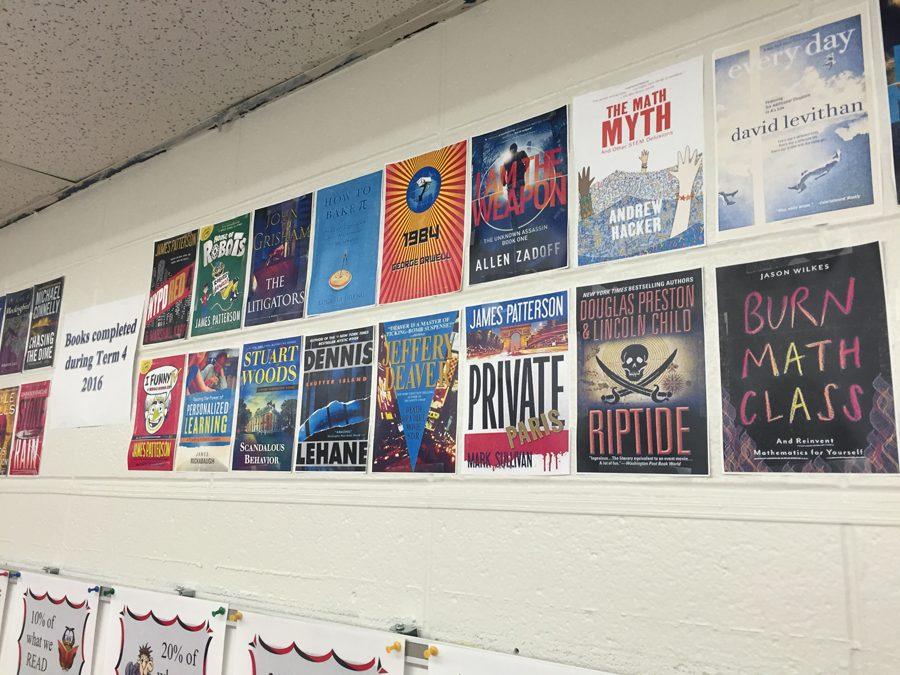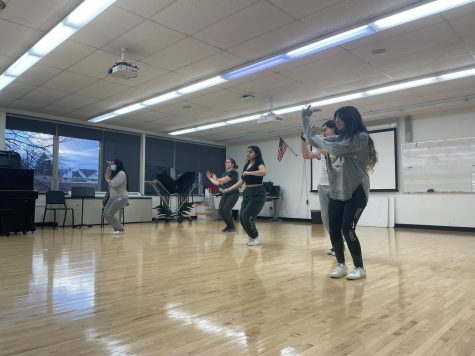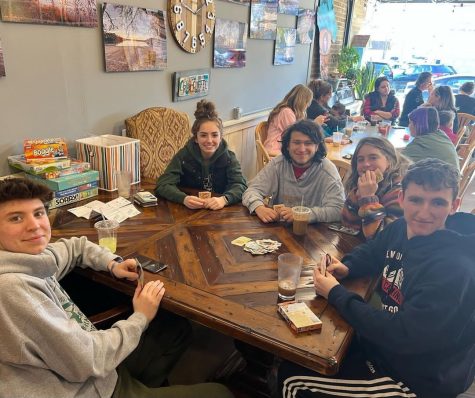Reading Racks Up Rewards
Math Teacher Jeff Harding keeps track of the books he’s read on a book wall in his room. These are just some of the books he’s read in term four.
May 13, 2016
The term “reluctant reader” is one that describes many MHS students. When it comes to reading, whether it be assigned class books or a novel of their own choice, many students find it hard to genuinely enjoy reading.
“I used to read a lot,” said Anthony Ko, senior. “But I just find it hard to keep up with everything now. I don’t have time to read, even though I try to.”
Several MHS teachers are hoping to change this attitude by proclaiming the rewards that reading offers. They provide their own favorite books, hoping to inspire a newfound love for reading in students.
“[Some of my all-time favorite books to recommend to students] are “Life As We Knew It” by Susan Beth Pfeffer and “Suspect” by Robert Crais,” said Jeff Harding, math teacher. “Authors that I gravitate to and read often [include] James Patterson, Harlen Coben, John Grisham, David Baldacci, Michael Connelly, to name just a few.”
While Harding is a math teacher known for teaching advanced courses like AP Calculus BC, he has much to say on the subject of reading. Students who visit his room can see the dozens of book cover images that line his walls, documenting all of the books he has read.
“I have read a number of YA books. I like their ease of story,” said Harding. “Having said that, I think it is also vitally important to read ‘intelligent’ literature as well. It is important to be informed. Find something you enjoy.”
English Teacher Mike Dayton has faced students’ lack of passion for reading often, in classes ranging from English 1 to AP English Literature. He has much experience teaching many of the typical classroom readings.
“My favorite book to teach is “Of Mice and Men.” It is accessible to every student and elicits strong emotion,” said Dayton.
Dayton promotes reading as both an enjoyable act and as a way to build stamina for college classes in the future. These two goals may seem contradictory, as reading to simply enjoy it suggests a lower level of reading comprehension, while building stamina for college classes implies the use of difficult texts and lengthy assignments. However, Dayton said that to have one you must have the other.
“I believe that when given choice, students will gravitate to the level of reading they are most comfortable,” said Dayton.
Therefore, some readers will choose harder books for a challenge while other readers will choose books according to their reading level.
“I think I would want to read more if I could read what I wanted.”
— Anthony Ko, Senior
“No one enjoys reading below their level, and at the same time, students do not enjoy reading when they struggle to comprehend at a basic level of summary because a book is so challenging,” said Dayton.
Dayton teaches many of his classes with the goal of preparing students for college in the future. He said that to be college ready, “Students have to not only read between 250-300 pages per week but also have the ability to comprehend at a high level what they are being asked to study.”
In this, he said that it is the responsibility of high school to get students to enjoy what they read in order to get them reading at the appropriate level.
“I think I would want to read more if I could read what I wanted, and I was given more time to do it,” said Ko. “I really do enjoy it.”


![MHS Alum Trey Baker hosting a MBK rising event on February ninth at the MHS annex. Said Baker, “I’m just really excited [and] super grateful for the community of Mundelein, for our educators, for our administration, at MHS who are really buying into this.”](https://mhsmustang.com/wp-content/uploads/2023/03/TreyBaker-350x475.jpg)

